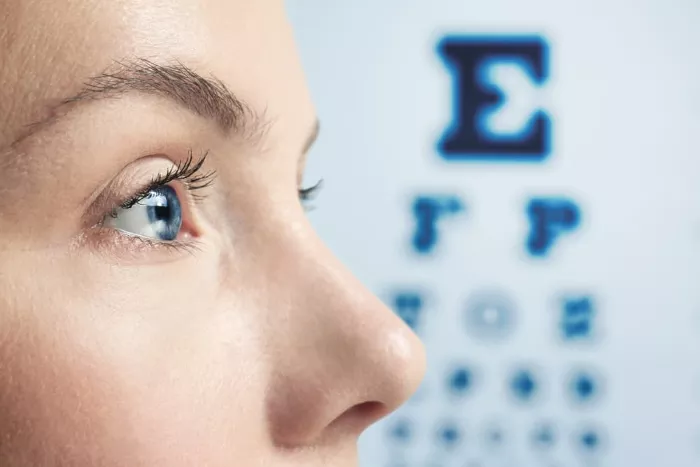Have you ever experienced blurry vision that comes out of nowhere? Maybe after staring at your phone or computer for too long? This could be temporary short-sightedness—a sudden, brief loss of clear distance vision. Unlike permanent myopia, this condition fades away with rest or simple adjustments.
In this article, we’ll explore why it happens, how to recognize it, and easy ways to restore clear vision fast.
What Is Temporary Short-Sightedness?
Temporary short-sightedness, or transient myopia, is a sudden difficulty in seeing distant objects clearly. Unlike regular myopia (nearsightedness), it doesn’t last long. It often happens due to eye strain, fatigue, or other temporary factors.
Key Characteristics:
- Blurry vision when looking far away
- Normal near vision (reading is still clear)
- Goes away after rest or removing the cause
Common Causes of Temporary Short-Sightedness
Several factors can trigger this condition. Understanding them helps prevent future episodes.
1. Prolonged Screen Time (Digital Eye Strain)
Staring at screens for hours forces your eyes to focus intensely. Over time, eye muscles tire, leading to temporary blurriness.
Symptoms:
- Dry, tired eyes
- Headaches
- Difficulty shifting focus between near and far
Follow the 20-20-20 rule—every 20 minutes, look at something 20 feet away for 20 seconds.
2. Eye Fatigue from Close-Up Work
Reading, sewing, or detailed tasks strain eye muscles, causing spasms that blur distance vision.
Symptoms:
- Sore eyes
- Temporary focus problems
Take breaks every 30 minutes and blink often to relax your eyes.
3. Dehydration
Lack of water reduces tear production, leading to dry eyes and momentary blurred vision.
Symptoms:
- Dry, irritated eyes
- Thirst and fatigue
Drink plenty of water and use lubricating eye drops if needed.
4. Medications and Eye Drops
Some drugs (like antihistamines or certain eye drops) can cause short-term vision changes.
Symptoms:
Sudden blurriness after taking medication
Check side effects with your doctor; symptoms usually fade as the drug wears off.
5. Low Blood Sugar (Hypoglycemia)
A drop in blood sugar can affect vision, making things look fuzzy.
Symptoms:
- Shakiness, dizziness
- Sudden vision changes
Eat a small snack (like fruit or nuts) to stabilize blood sugar.
6. Eye Strain from Poor Lighting
Dim or harsh lighting forces your eyes to work harder, leading to temporary focus issues.
Symptoms:
- Squinting in low light
- Eye discomfort
Use soft, even lighting when reading or working.
Quick Fixes for Temporary Short-Sightedness
1. Rest Your Eyes
Close them for a few minutes or practice palming (covering eyes with warm hands).
2. Adjust Screen Settings
Reduce blue light and increase text size to ease strain.
3. Stay Hydrated
Drink water throughout the day to keep eyes moist.
4. Use Artificial Tears
Lubricating drops relieve dryness-induced blurriness.
5. Try Eye Exercises
- Focus shifting (near to far objects)
- Figure-eight tracing (follow an imaginary “8” with your eyes)
When to See a Doctor
Most cases resolve on their own, but seek help if you notice:
- Persistent blurry vision
- Eye pain or redness
- Flashes of light or floaters
These could signal serious issues like glaucoma or retinal detachment.
Preventing Future Episodes
1. Follow the 20-20-20 Rule
Regular breaks reduce digital eye strain.
2. Optimize Workspace Lighting
Avoid glare and use soft, ambient light.
3. Stay Active
Exercise improves blood flow to the eyes.
4. Eat Eye-Friendly Foods
Carrots, spinach, and fish support vision health.
Conclusion
Temporary short-sightedness is common and usually harmless. By understanding the causes—like screen time, dehydration, or fatigue—you can take quick steps to restore clear vision. Simple habits, such as regular breaks and proper hydration, keep your eyes sharp.
If blurriness persists, don’t ignore it. Early check-ups prevent long-term problems. Your eyes work hard—give them the care they deserve!
Related topics:
Is There Eye Surgery For Farsightedness?
Can You Drive After Having Laser Eye Surgery? A Complete Guide
Do You Have To Be Awake For Laser Eye Surgery?


